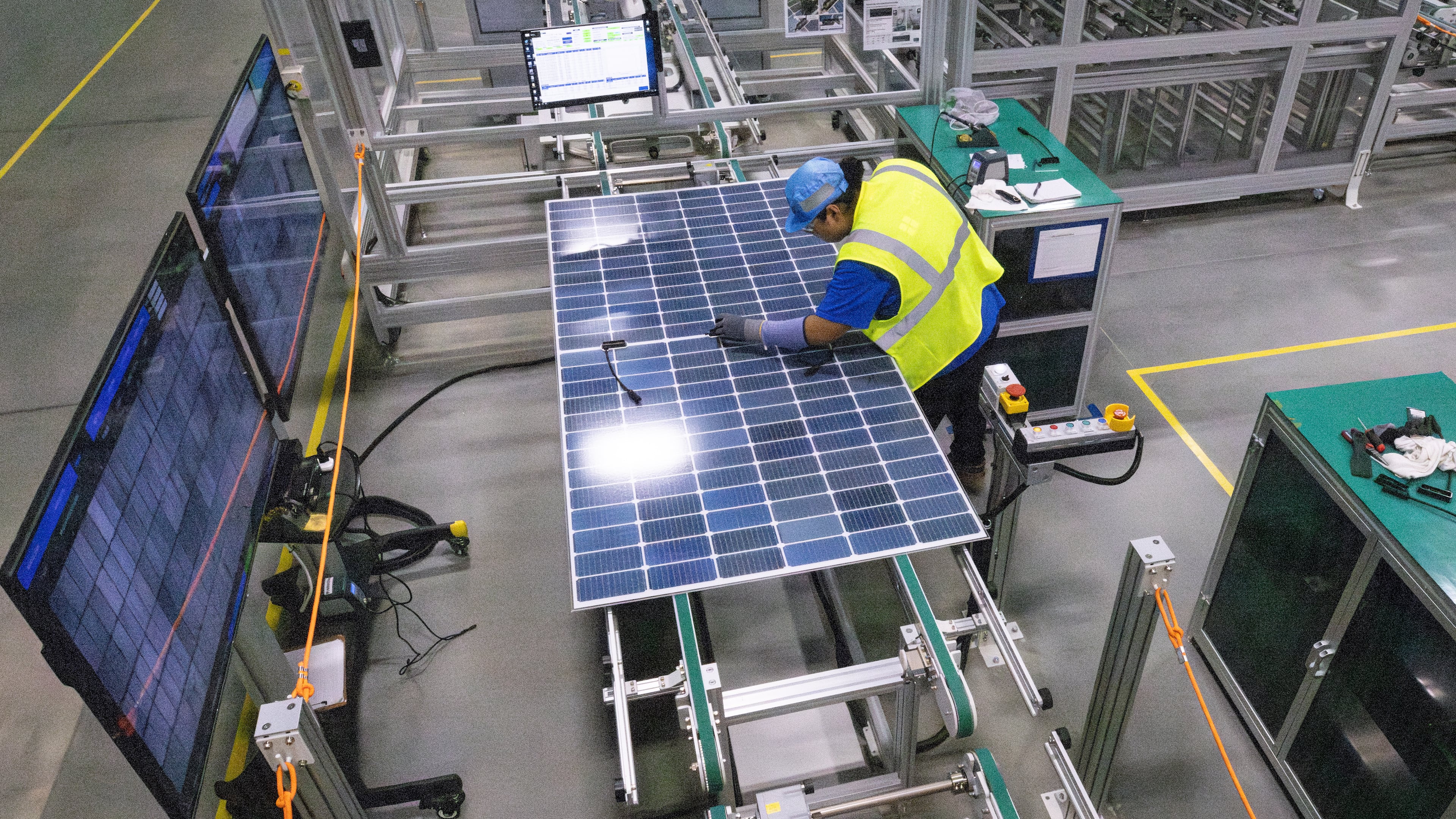Energy giant doubles order from Qcells’ Georgia solar panel plant

A little more than a year ago, a Virginia energy company announced plans to buy millions of Georgia-built solar panels in the largest “community solar” purchase in U.S. history.
This week, Summit Ridge Energy said it plans to nearly double that commitment.
Summit Ridge said it will expand the order it has made from Qcells in Northwest Georgia from 1.2 gigawatts to 2 gigawatts. The increased capacity will go toward more than 100 additional community solar projects across the country, the companies said in a statement. When complete, Summit Ridge said its aggregate fleet of solar farms will generate enough clean energy to power an estimated 200,000 homes and businesses.
“Community solar” is a term for a solar power generator that supports multiple subscribers, who either use the power directly or earn credits toward their monthly energy bill.
“This enables the participation of customers who may have previously been excluded from the clean energy economy — like renters and people whose homes are not suitable for rooftop solar,” a spokeswoman for Summit Ridge wrote in an email.
South Korea-based Qcells operates two factories in Georgia. In 2023, the company announced its second factory as part of a $2.5 billion expansion in Bartow and Whitfield counties that was also expected to create 2,500 jobs. Combined, the plants are the largest solar manufacturing operation in the Western Hemisphere, the company has said.
The original deal last year with Summit Ridge brought Vice President Kamala Harris to Whitfield County to announce the order and tout it as an endorsement of the Biden administration’s green energy and economic policies.
QCells has made an aggressive play for the U.S. renewable energy market in response to billions of dollars in federal and state incentives. It began producing finished solar panels earlier this year.
Georgia has become a green jobs magnet, with multibillion-dollar investments by companies like Qcells, as well as by electric vehicle and battery manufacturers. In addition to federal incentives, the state of Georgia, led by Gov. Brian Kemp, and local officials, have used tax breaks and other incentives to woo manufacturers here.
For now, none of the homes or businesses to be powered by Summit Ridge are in Georgia.
The company is deploying the panels in states with active “community solar” programs such as Maryland, Illinois, Virginia and Maine.
A Republican-backed effort to pass legislation creating a similar program in Georgia died in the Legislature this year. The Summit Ridge representative expressed hope lawmakers would continue to work on the issue.
“Upon the passage of that legislation, Summit Ridge expects to install panels throughout Georgia using these domestically manufactured modules,” the spokeswoman said.
Justin Lee, CEO of Qcells, said in a statement that expanding the purchase agreement means more communities will have access to solar energy.
“This partnership not only supports the domestic manufacturing industry and thousands of jobs in solar, but it also ensures more people – especially those who have historically been left out – benefit from everything the clean energy economy has to offer,” he said.
Even with the expansion, the deal with Summit Ridge is not Qcells’ largest to date. Last year, Microsoft ordered 2.5 gigawatts of solar generating capacity.
A note of disclosure
This coverage is supported by a partnership with Green South Foundation and Journalism Funding Partners. You can learn more and support our climate reporting by donating at ajc.com/donate/climate/



